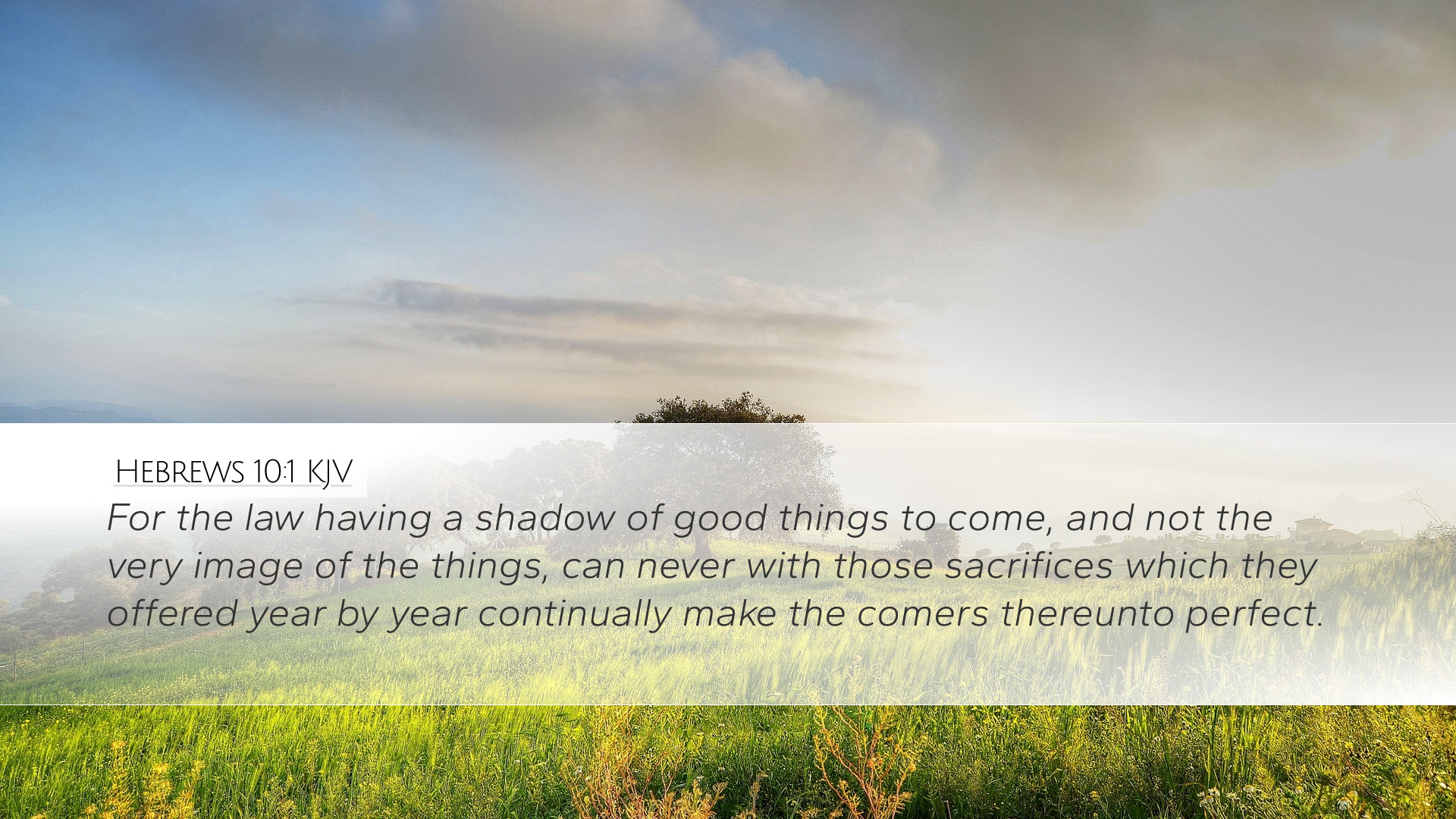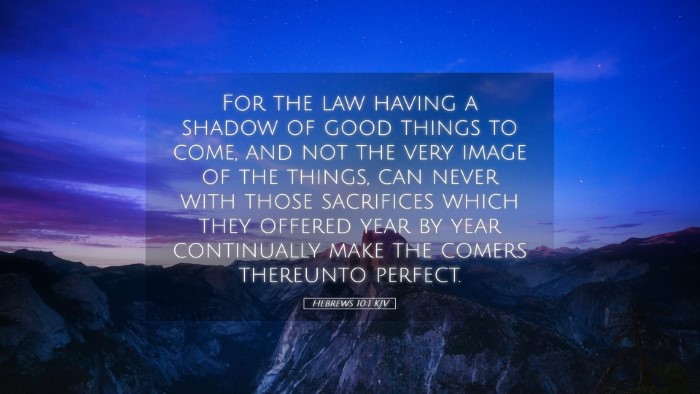Old Testament
Genesis Exodus Leviticus Numbers Deuteronomy Joshua Judges Ruth 1 Samuel 2 Samuel 1 Kings 2 Kings 1 Chronicles 2 Chronicles Ezra Nehemiah Esther Job Psalms Proverbs Ecclesiastes Song of Solomon Isaiah Jeremiah Lamentations Ezekiel Daniel Hosea Joel Amos Obadiah Jonah Micah Nahum Habakkuk Zephaniah Haggai Zechariah MalachiVerse
Hebrews 10:1 Hebrews 10:2 Hebrews 10:3 Hebrews 10:4 Hebrews 10:5 Hebrews 10:6 Hebrews 10:7 Hebrews 10:8 Hebrews 10:9 Hebrews 10:10 Hebrews 10:11 Hebrews 10:12 Hebrews 10:13 Hebrews 10:14 Hebrews 10:15 Hebrews 10:16 Hebrews 10:17 Hebrews 10:18 Hebrews 10:19 Hebrews 10:20 Hebrews 10:21 Hebrews 10:22 Hebrews 10:23 Hebrews 10:24 Hebrews 10:25 Hebrews 10:26 Hebrews 10:27 Hebrews 10:28 Hebrews 10:29 Hebrews 10:30 Hebrews 10:31 Hebrews 10:32 Hebrews 10:33 Hebrews 10:34 Hebrews 10:35 Hebrews 10:36 Hebrews 10:37 Hebrews 10:38 Hebrews 10:39

